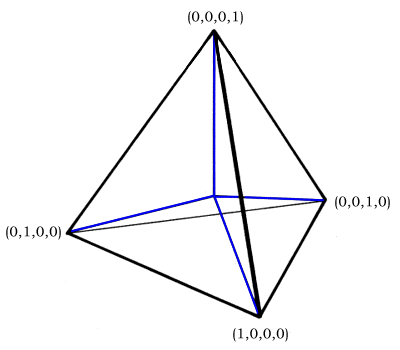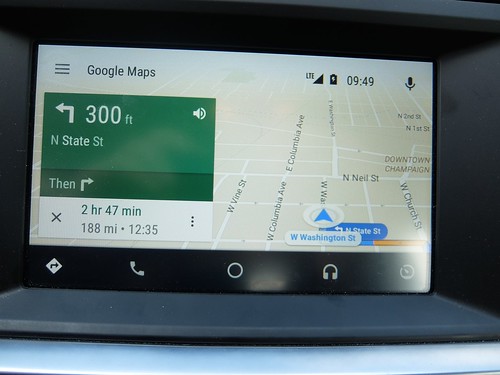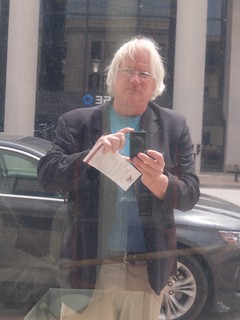AQR Capital and Eventbrite are sponsoring this fourth annual EduSummit, wherein educators from around the world converge to discuss strategies and initiatives around Python in education. You may have heard of the Raspberry Pi, and Microbit devices.
The UK has been especially on the ball in getting this technology diffused. One Laptop Per Child (OLPC) was an even more ambitious project, global in scope, wherein Python played a key role.
Nicholas Tollervey, a UK-based Pythonista mentioned edu-sig as a listserv worth jumping into. He acknowledged me for helping keep it breathing. S'been rather quiet lately, though with some thoughtful threads. I've habitually posted to said listserv since its inception.
Pygame Zero is based on PyGame, GPIO, 0MQ. The target audience is teachers looking for interesting projects for their students, based on some of the most affordable devices available. One of its jobs is to provide relevant error messages, so that students experience more helpful feedback.
What sort of Manifesto might wrap this up, give a nice summary statement? Nicholas and others are brainstorming on the question. I have my own rant.
The teachers coming to Pycon UK are those tasked with teaching "computer stuff" -- as distinct from mathematics -- much like in the US. Physical Education teachers, business application teachers, want to know what to do with the Microbit.
The US has no institution like the BBC, with a long history of giving out computers. The BBC has a Royal Charter, is not a for-profit private company per se. The charter says the BBC should educate, not just entertain and inform.
My impression is the UK is pulling ahead of the US, thanks to the US not having its act together.
MicroPython is Python 3.x for micro-controllers, including the Arm chip on the Microbit. This solution allowed Microsoft's TouchDevelop to change their approach (TouchDevelop is one of a few ways to flash runnable bytecode to the Micobit chip).
In response to teacher demand, Nicholas and friends are developing Mu, a combination REPL + Editor (i.e. an IDE).
Tollervey's background as a musician is a big plus I'd say. Microbit comes with a music module, that comes with canned tunes. They'll be available for sale in the US in a month or two for about fifteen to twenty pounds. Think of them as a stepping stone to Raspberry Pi programming as a follow-up step.
We have a lot of librarians at the Summit this year. I wish Multnomah County had taken my job application more seriously, for Diversity Inclusion Fellow. No interview even. Because I'm too old? I wrote back to say I'd be happy to work with whomever they end up hiring.
Also frustrating is how Peter Farrell is being excluded because he didn't sign up in time. We have some empty seats (there's one to my immediate right). He's at the forefront of the "learning Python to learn math" movement. He gave me a copy of his softcover book yesterday.
Dr. Craven spoke about his experience as a college intro to programming teacher. He's the author of Program Arcade Games, a Python and Pygame based curriculum. Lesson plans should evolve exactly the way software does, with lots and lots of revisions. Improve the curriculum constantly, it's not a "dead document". The new kind of teacher will do that.
Watch out for feature bloat. "Taking away" (paring down) is often as effective or more effective than stuffing with content. Internationalize. Self publish, maybe include a Kindle version (forget the Nook).
Other advice from Dr. Craven: Do video versions. Take out the "ums". Do on-screen markups of the code using a tablet. Use a good microphone. On-line quizzing gives the curriculum writers useful feedback. Create lots and lots of free-standing examples. Don't just stick to developing one super-long application. Archive to Youtube or Vimeo. The latter allows more of a paywall.
Skip using Youtube ads. Flipped classroom doesn't work (different from on-line classroom). Animated code examples not worth the trouble. PDF downloads lock you into old versions. Dynamic revising means keeping it fresh on-line. Use the Arcade Library based on OpenGL and Pyglet, not Pygame which is perhaps going stale?
Actually not, as the next speaker persuasively suggested that Pygame is still alive and kicking. But does it install to a Mac? Python using Minecraft is certainly plenty easy, including with Jupyter Notebooks as a front end.
During the Lightning Talks, I talked about my Martian Math class for Saturday Academy. This was a math class more than a programming class, but using VPython was certainly a big part of it. I mentioned how thinking about terraforming Mars gets us thinking more about terraforming Earth, showing pictures of Celilo Falls turning the the Dalles Dam, where Google is plugged in.
Perhaps in my allotted five minutes (I used only 4.5) I failed to communicate there's a lot of published literature behind Martian Math, much of which is simply Synergetics in disguise.
Should Grok Learning really be registering an error if a student enters print("Hello World") instead of print("Hello, World"). The English are sticklers for grammar. The missing comma strikes them as egregious. A large percentage of students therefore initially fail to get it right.
I was up early wearing my anthropology hat, posting to MathFuture about the various brands (flavors) of mathematics that use the meme "4D". Given my company name 4Dsolutions.net, this makes some sense.
I've been teasing apart what I call "Coxeter.4D" from "Einstein.4D" using proper names to designate namespaces (per Python). Unless we understand there's a difference in namespaces (and what a namespace is), it's bloody hard to interject yet another sense of 4D: R. Buckminster Fuller's.
Why we might want to interject the latter has to do with the positive futurism connected thereto.
Long time readers of these blogs will know I frequently cite page 119 of Regular Polytopes by H.S.M Coxeter (that's the Dover softcover edition, 1973). I'm doing that again for Adrius (in Lithuania) and others.
The UK has been especially on the ball in getting this technology diffused. One Laptop Per Child (OLPC) was an even more ambitious project, global in scope, wherein Python played a key role.
Nicholas Tollervey, a UK-based Pythonista mentioned edu-sig as a listserv worth jumping into. He acknowledged me for helping keep it breathing. S'been rather quiet lately, though with some thoughtful threads. I've habitually posted to said listserv since its inception.
Pygame Zero is based on PyGame, GPIO, 0MQ. The target audience is teachers looking for interesting projects for their students, based on some of the most affordable devices available. One of its jobs is to provide relevant error messages, so that students experience more helpful feedback.
What sort of Manifesto might wrap this up, give a nice summary statement? Nicholas and others are brainstorming on the question. I have my own rant.
The teachers coming to Pycon UK are those tasked with teaching "computer stuff" -- as distinct from mathematics -- much like in the US. Physical Education teachers, business application teachers, want to know what to do with the Microbit.
The US has no institution like the BBC, with a long history of giving out computers. The BBC has a Royal Charter, is not a for-profit private company per se. The charter says the BBC should educate, not just entertain and inform.
My impression is the UK is pulling ahead of the US, thanks to the US not having its act together.
MicroPython is Python 3.x for micro-controllers, including the Arm chip on the Microbit. This solution allowed Microsoft's TouchDevelop to change their approach (TouchDevelop is one of a few ways to flash runnable bytecode to the Micobit chip).
In response to teacher demand, Nicholas and friends are developing Mu, a combination REPL + Editor (i.e. an IDE).
Tollervey's background as a musician is a big plus I'd say. Microbit comes with a music module, that comes with canned tunes. They'll be available for sale in the US in a month or two for about fifteen to twenty pounds. Think of them as a stepping stone to Raspberry Pi programming as a follow-up step.
We have a lot of librarians at the Summit this year. I wish Multnomah County had taken my job application more seriously, for Diversity Inclusion Fellow. No interview even. Because I'm too old? I wrote back to say I'd be happy to work with whomever they end up hiring.
Also frustrating is how Peter Farrell is being excluded because he didn't sign up in time. We have some empty seats (there's one to my immediate right). He's at the forefront of the "learning Python to learn math" movement. He gave me a copy of his softcover book yesterday.
Dr. Craven spoke about his experience as a college intro to programming teacher. He's the author of Program Arcade Games, a Python and Pygame based curriculum. Lesson plans should evolve exactly the way software does, with lots and lots of revisions. Improve the curriculum constantly, it's not a "dead document". The new kind of teacher will do that.
Watch out for feature bloat. "Taking away" (paring down) is often as effective or more effective than stuffing with content. Internationalize. Self publish, maybe include a Kindle version (forget the Nook).
Other advice from Dr. Craven: Do video versions. Take out the "ums". Do on-screen markups of the code using a tablet. Use a good microphone. On-line quizzing gives the curriculum writers useful feedback. Create lots and lots of free-standing examples. Don't just stick to developing one super-long application. Archive to Youtube or Vimeo. The latter allows more of a paywall.
Skip using Youtube ads. Flipped classroom doesn't work (different from on-line classroom). Animated code examples not worth the trouble. PDF downloads lock you into old versions. Dynamic revising means keeping it fresh on-line. Use the Arcade Library based on OpenGL and Pyglet, not Pygame which is perhaps going stale?
Actually not, as the next speaker persuasively suggested that Pygame is still alive and kicking. But does it install to a Mac? Python using Minecraft is certainly plenty easy, including with Jupyter Notebooks as a front end.
During the Lightning Talks, I talked about my Martian Math class for Saturday Academy. This was a math class more than a programming class, but using VPython was certainly a big part of it. I mentioned how thinking about terraforming Mars gets us thinking more about terraforming Earth, showing pictures of Celilo Falls turning the the Dalles Dam, where Google is plugged in.
Perhaps in my allotted five minutes (I used only 4.5) I failed to communicate there's a lot of published literature behind Martian Math, much of which is simply Synergetics in disguise.
Should Grok Learning really be registering an error if a student enters print("Hello World") instead of print("Hello, World"). The English are sticklers for grammar. The missing comma strikes them as egregious. A large percentage of students therefore initially fail to get it right.
I was up early wearing my anthropology hat, posting to MathFuture about the various brands (flavors) of mathematics that use the meme "4D". Given my company name 4Dsolutions.net, this makes some sense.
I've been teasing apart what I call "Coxeter.4D" from "Einstein.4D" using proper names to designate namespaces (per Python). Unless we understand there's a difference in namespaces (and what a namespace is), it's bloody hard to interject yet another sense of 4D: R. Buckminster Fuller's.
Why we might want to interject the latter has to do with the positive futurism connected thereto.
Long time readers of these blogs will know I frequently cite page 119 of Regular Polytopes by H.S.M Coxeter (that's the Dover softcover edition, 1973). I'm doing that again for Adrius (in Lithuania) and others.





